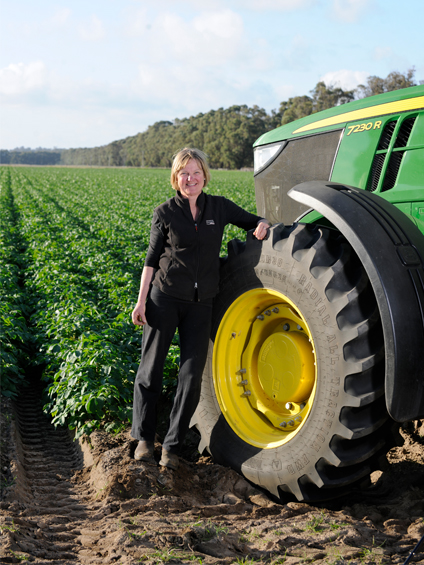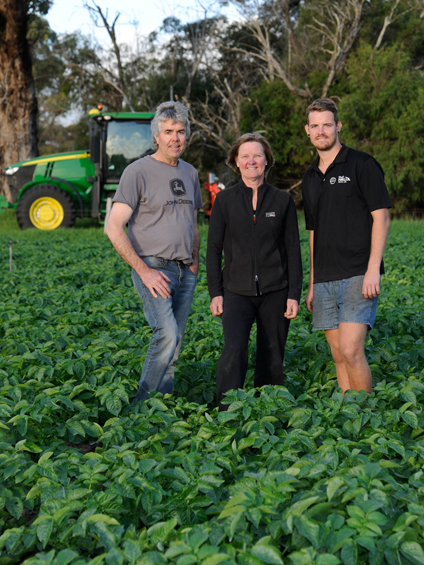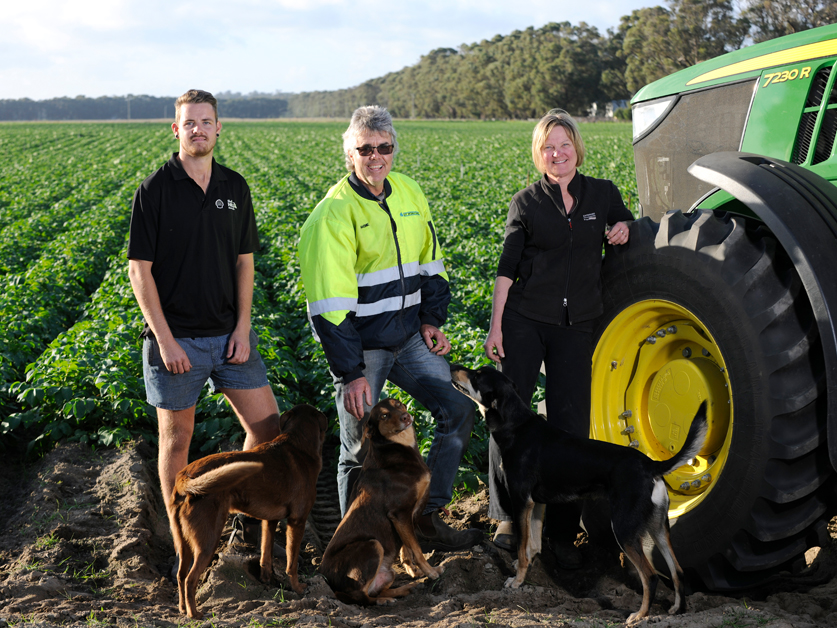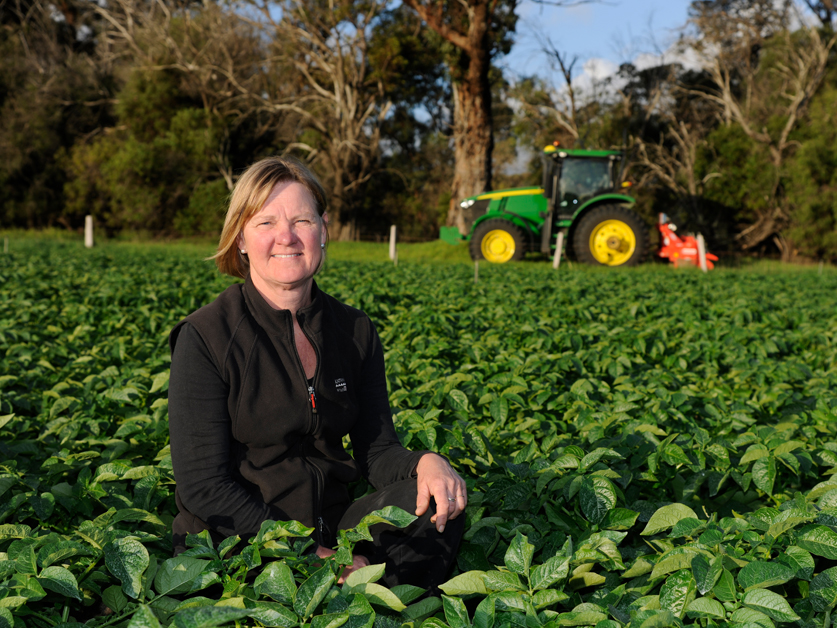A rosy future for WA potato growing family
From milking cows in Europe to growing spuds in rural Western Australia, Mia Rose has enjoyed a varied career in agriculture – and she has no plans to hang up the boots just yet. Michelle De’Lisle speaks to Mia about the challenges she and her family have faced, the importance of getting involved in potato industry discussions, and her love for the farm.
Fast facts
Name: Mia Rose
Location: Myalup,WA
Works: Myalup Trust
Grows: Ware and see potatoes, broccolini, garlic and sweetpotato
Mia Rose’s career in agriculture has spanned three countries. Originally from Sweden, Mia worked in a dairy operation before jetting off on exchange to New Zealand to pursue her farming passion for eight months. From there, Mia met her now-husband Graham (a third-generation grower) and moved to Myalup, a fertile potato and vegetable region in Western Australia.
That was 30 years ago, and the pair haven’t looked back. Along with their 24-year old son Matthew and his girlfriend Isabelle, Mia and Graham produce ware and seed potatoes; Broccolini; lucerne hay; cattle and sheep; and dabble in garlic and sweetpotato.


Tackling Challenges
Like all potato growers across Western Australia, the Roses’ growing operation was impacted by the arrival of tomato-potato psyllid (TPP) and the outbreak of Dickeya dianthicola that occurred in 2017.
Although the trade restrictions between Western Australia and the rest of the country have now been lifted, it was a difficult period for growers over in the west.
“It’s been tough for everybody here in the potato industry,” Mia says.
“But I think sometimes when times get a bit tough, you need to look at other opportunities.”
“It's been tough for everybody here in the potato industry,"
Giving back
Until recently, Mia was the treasurer of WA Potatoes, formerly known as the Potato Growers Association of Western Australia, which is the peak industry body representing around 80 potato growers across the state.
The organisation negotiated with the state government for an assistance package for the west’s potato growers when the potato industry underwent deregulation in 2016, and it assisted again when TPP and Dickeya dianthicola were detected the following year.
“WA Potatoes is looking at different things and helping as much as it can. WA Potatoes is looking at new opportunities for growers and help when needed. I think it’s good to have a body like that just for potatoes, even if Western Australia is not that big,” she says.
“WA Potatoes is doing such a good job for the industry. When we had the deregulation of the potato industry in 2016, it was working so hard for growers to create the best outcome in the situations that they were in.
“We wouldn’t have gotten anything out of the Government if we didn’t lobby hard for it. The package that the potato industry received has been spent on worthwhile research and development for potatoes.”
Although she is no longer with WA Potatoes, Mia remains a member of the Agricultural Produce Commission’s Potato Producers committee. She relishes her position on the committee, and enjoyed her previous role too.
“You’re there to implement plans and help to make the industry better for growers, which is really rewarding,” Mia says.
“The growers that are involved on these committees have got expertise across different sectors, which gives you a better foundation when it comes to discussing industry issues and making decisions.”
Mia recommends other potato growers get on-board and join in industry discussions.
“People are so busy, and a lot of people don’t want to be involved. But it’s really good if they can. If you want to be part of making decisions, you’ve got to be there to help.”

Loving of the land
Mia’s passion for farming has taken her halfway around the world, and it hasn’t waned. When AUSVEG spoke to Mia, she was helping Matthew in the potato paddock – he was on the harvester; her on the bin trailer.
“I love farming in general – it’s great being outside all the time and you’re seeing how the crops grow,” she says.
“I don’t come from a farm but I was always interested in farming, and when I chose to study, I went to ag school. I never regretted it because you just meet so many wonderful people in the agriculture industry.”
According to Mia, the agriculture landscape has changed over the years.
“Farming is not what it used to be. It’s so technical and you’ve got to know so much – chemistry, new technology, computers – even buying a tractor these days; you don’t just buy a new tractor, you have to say what you need in it ,” Mia says.
Each year, Mia extends her knowledge to overseas students who are undertaking an exchange program like she did over three decades ago. They stay for six months and gain an insight into all aspects of the farm.
“I think lot of people go on exchange programs because they want to go to their own farm back home with their knowledge. Wherever you go, you always learn something.”
There are changes abound in the next decade or two, including potentially handing the business over to the next generation. However, Mia remains upbeat about the future of the farm and the business.
“You have to evolve, otherwise you get left behind,” she says.
“You’ve got to be forward-thinking. Time is money, so it’s about doing things as well as you can. We just want to continue to do that.”
This grower profile first appeared in the leading magazine for the Australian potato industry, Potatoes Australia. If you’d like to subscribe to receive a new edition of Potatoes Australia in your mailbox every two months, use our online subscription form!
Photography credit: Chris Kershaw Photography

